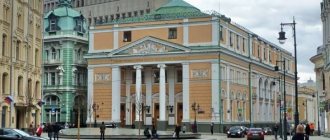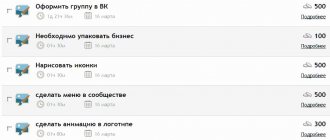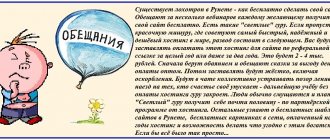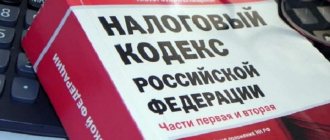Hello, dear reader!
According to Bloomberg (autumn 2020), the capitalization of the global stock market in the global economy has exceeded $80 trillion. An assessment of the dynamics allows us to conclude that the market has reached the $100 trillion mark. in the next year or two.
For comparison, the expenditure side of the Russian Federation budget in 2019 amounted to 18 trillion. rub. Or at the rate $1=64 rubles. — 281 billion dollars. The stock market is the topic of conversation today.
What it is
The definition of a classic stock exchange is a platform for trading securities (stocks and bonds, receipts, etc.). This was true in the early days of stock exchanges. Traders gathered in one place and made deals among themselves to buy and sell shares. Later, derivatives and currency trading were added to the classic market functions.
The main stock exchange of Russia is the Moscow Exchange. The first name is the Moscow Interbank Currency Exchange (MICEX). In the early 1990s there were no securities there. It was a platform for currency trading. Then bonds were added. Even later - stocks and derivatives.
The concept of a stock exchange standard has become a bit blurred. There may be either separate exchanges for trading derivatives, or divisions within stock exchange platforms. The main thing remains - the stock exchange must include trading in securities. The rest is dictated by the history of the development of a particular exchange, the history of mergers and acquisitions in the market.
Investments vs trade. What to study for trading and investing on the stock exchange
We have come to the most multifaceted and interesting issue that everyone will have to study on their own. Here you just need to decide on the terminology and some reference literature.
Trading on the stock exchange is the execution of transactions for the purchase and sale of securities in order to make a profit. This is real trading, according to the principle “buy cheaper, sell more.” Suitable for those who want to make money on the stock exchange.
Investments are investments of funds for the purpose of making a profit. This is a more passive way, when we buy stocks or bonds and wait for interest to flow from them. The income is slightly more than a bank deposit, but coupled with the increase in price, we will have a decent profit that will cover inflation and increase funds.
Now about what you can learn for trading on the stock exchange:
In fact, any online manuals or exchange player forums are suitable here. All relevant and up-to-date information about trading strategies, signals, and other trading assistants can be found in the public domain.
But since the main component of trading is technical analysis, every trader should still have one book - Technical Analysis - Jack Schwager. This is an excellent textbook, thanks to which you can perfectly understand technical analysis and start analyzing with the help of charts.
Alexander Elder is also suitable - the basics of stock trading. This book provides an understanding of all the mechanisms of the stock market and several timeless strategies.
The Investing Bible is a book by Benjamin Graham - The Intelligent Investor. After reading it (it is important that it is in the latest edition), you will no longer have to look for other manuals and start investing money. With this book you can increase your capital several times in just 5-6 years.
Functions and tasks
Organizing the turnover of the secondary securities market is the main task of the stock exchange. To attract investment capital for its development goals, a joint-stock company conducts an IPO (Initial Public Offering) - an initial public offering of shares to a circle of investors.
First of all, applications from large investors are accepted, then the issuer's securities begin to be traded on the stock exchange. The price is determined by supply and demand. The exchange plays the role of a trading platform on which transactions for the purchase and sale of issuers are concluded.
The goal of the exchange is to provide everyone with maximum access to trading shares placed on the stock exchange.
An important function of the stock exchange is to ensure liquidity of traded instruments. This can be done naturally - market supply/demand. Additionally, the work of market makers at the stage of initial placement and further during the trading process.
Today, stock exchanges use automated trading. Everything happens with the help of computers. Hundreds of transactions per unit of time. This places increased demands on the computing power of the stock exchange platform and communication channels with it.
The final trader who has been trading on the stock exchange for 5–10 years may never see it in person. Everything happens remotely through a broker. An investor can sit in Australia or Indonesia and trade on the NYSE in New York.
The tasks of the stock exchange include maintaining records of securities - depository activities. It can be provided by the exchange or licensed outside market participants.
Risks in financial markets
When engaging in financial activities, there are always certain financial risks. Likewise, the stock exchange has its own risks, which all exchange participants should be aware of.
Risks on the stock exchange:
- Not trading risks.
- Trading risks.
Non-trading risks include risks that arise in the event of bankruptcy of a brokerage company and errors in the details of financial transactions for replenishment/withdrawal of funds.
Trading risks arise when conducting trading operations on the stock exchange. These include: failures in quotes, violation of the rules of the trading algorithm, violation of equity management, aggressive trading methods, as well as the liquidation of their enterprises by issuers.
Principle of operation
The management of the stock exchange formulates the rules of trading and operation of the trading platform:
- The basis of the work is the trading system. Software and hardware environment for concluding agreements between the parties and maintaining records, including dedicated communication channels to common traffic exchange points. This is the most complex and expensive component of the stock exchange.
- The second is the clearing house, which provides clearing, intermediate or final. Counting all client transactions on the market during a trading session.
- Finally, the job of the depository is to maintain records of shareholders' rights in the securities purchased. Maintained in non-documentary form, electronic records.
Tools of the trade
Briefly, on the stock exchange, trading instruments are securities (stocks, bonds, depositary receipts), derivatives (futures, options). Additionally - currency and shares of exchange-traded investment funds.
Example - Moscow Exchange. The listed tools are available on it.
What is traded on exchanges
The main product of stock exchanges is considered to be securities. The exchange deals with stable and profitable instruments. The stock exchange has two main types of securities - stocks and bonds.
A share is an equity security that gives its holder the right to claim a portion of the income or property of a particular company.
A bond is a debt obligation that guarantees the payment of a certain amount.
Comparing these two types of securities, stocks are less safe as they are subject to greater volatility. The stock price is volatile and can depend on many factors: from the illness of the company's main shareholder to a global crisis. Bonds are less volatile and are absolutely independent of the conditions in which the company is located. The bond itself is a fact of debt to the owner of the securities, and this debt is fixed.
In addition to classic instruments, new varieties of them have appeared today - futures, but they are more narrowly focused and concern experienced traders. Perhaps you have previously come across articles on the topic of stock exchanges, and did not quite understand what kind of “bears” and “bulls” that settled on the stock exchange are mentioned in the text. In fact, these are two significant concepts that characterize the behavioral characteristics of certain groups of people:
“Bulls” are traders who purchase securities, thereby betting on their rise. The term arose from a phenomenon in which quotes on the chart literally rise “on the horns.”
“Bears” are traders who persistently bet on a decline in securities and sell them. The bear is putting pressure on the market with its mighty paws, holding back growth rates.
The stock market is based on a constant battle between bulls and bears.
Organizational structure of the stock market
I will consider the scheme of organization of the stock market using the example of the structure in the Russian Federation.
Controls
The rules of the game, that is, the operation of financial markets, are determined by national legislation. The main supervisory and regulatory body is the Central Bank of the Russian Federation. The bank's website contains laws and regulations.
Menu “Financial markets/Regulation of financial markets”.
Stationary structure
Includes an arbitration and audit service, a settlement (clearing) chamber, a reference and information department, and an IT department. The latter is the most important component of the operation of the exchange.
Executive departments
Stock Exchange Board.
Specialized units
Depository, storage facilities for commodity groups for the execution of deliverable futures.
Composition of parties in exchange trading
Next:
- End client. Individual or legal entity.
- Broker, dealer. Professional participant of the stock exchange. Intermediary between the client and the stock exchange.
- Settlement clearing house. By default it is included in the exchange. Reduces all the mathematics of trading to the final indicator for each trading participant. Money, quantity, name of instruments traded, etc.
- Banks. The side of financial calculations. Deposit/withdrawal of money. At the same time they can act as a broker on the market. Examples - VTB, Sberbank, Otkritie, Gazprombank.
- The exchange is an organizer of trading and a platform for conducting transactions.
- Depository. Maintaining records of owners' securities. They can be either independent or part of the exchange in the form of a subsidiary or structural division.
Who can participate in trading
Participants in the trading process on the stock exchange are described below.
Broker
What do brokers do in the market? This is a professional participant in the securities, derivatives, and currencies markets. An intermediary between the exchange as the organizer of trading and the end user. The broker has a permanent location on the exchange, is connected to it by dedicated communication channels (as a rule), and has specialized software. For the exchange, this is the main settlement person.
It does not matter the finite number of users the broker has. He himself is responsible for this. Just like for following all the rules. All user actions pass through the servers of the broker with whom he has a brokerage service agreement.
The exchange broadcasts operating rules that brokers can supplement at their discretion without violating the law. An example is that there is an exchange commission for trading operations. Supplemented by broker fees. He sets his commissions independently based on his interests.
The broker acts as a 100% intermediary between the end client and the stock exchange. Operates in the market with clients' money.
Dealer
In the exchange space, the concept of “dealer” is used by default when working on Forex (forex), a free market for trading currency pairs. A Forex dealer can act as a broker. Additionally - the opposite party in a market transaction with a client.
Without issuing an order to buy or sell on real Forex. In this case, the client enters into a deal with the dealer. This can be used by an unscrupulous forex dealer to his own advantage, to the detriment of the client’s interests.
Manager
A professional market participant who attracts investors' money to place it on the stock exchange in order to make a profit. Manages the money of his clients.
Example - “Sberbank Asset Management”. There is almost $15 billion under management.
Issuer
A joint stock company with an initial (IPO) or additional (SPO) placement of securities on a stock exchange. The goal is to attract additional capital for the purposes determined by the company.
Investor
Buys shares of the issuer on the market in order to profit from the growth in the value of securities and/or dividend payments. In fact, he becomes a co-owner of the company.
Bears all market risks related to movements in securities prices. They can both rise and fall. Long-term investing involves the purchase of securities with the aim of holding them in the investment portfolio for a period of at least 3–5 years.
Broker
In the stock exchange, the concept is similar to a broker.
Securities
As already noted, securities come in various types, but behind their value there are always real assets. Most often we come across shares issued by enterprises and organizations. The value of shares is determined, first of all, by the value of the property of the enterprise or organization, and then by their market value at the moment.
In this regard, we can recall the shares of Google, Microsoft or Apple, which at the moment have simply cosmic value. When the shares of these companies were initially offered, their value was quite small, since they did not have a large enough property base. However, then the activities of these companies were very effective and in demand, and today the whole world knows these brands, billions of people use their goods and services. The value of the shares of these companies, and therefore their capitalization, is huge at the moment, primarily due to the great popularity of these brands, simply put, thanks to market promotion. But if, one day, these companies, for some reason, stop selling the latest flagship products on the market, then their capitalization and the value of their shares will sharply fall several times. The history of the financial market already remembers many such stories. We analyzed this example so that you better understand the essence and mechanism of circulation of securities on the stock market.
A security itself is a type of monetary document that gives its owner the right to receive profit and own a small part of the assets of a particular enterprise or organization. For example, by buying a share with his own money, an individual acts as an investor for this enterprise, actually investing his free money in the development of a specific production.
Depending on the type of security, cash income may be paid to its owner regularly, for example, once a year, or have some other period of income. This may be dividends or some other scheme of mutual settlements, determined by the type of security and the current agreement concluded upon its acquisition.
Securities can be bought and sold on stock exchanges through purchase and sale transactions or transferred to someone based on a legal contract.
The main part of the Russian securities market today consists of:
- stock;
- bonds (private, corporate, government);
- options;
- investment shares;
- bills;
- futures;
- certificates (savings, depository, housing);
- checks;
- bills of lading, warrants, etc.
We have now mentioned only the most common Russian securities; on the world stock market the list of traded securities is much wider. And now, of course, we will not present it here, since these are very complex financial instruments that have their own specifics and it is quite difficult to immediately understand why they are needed and how to handle them.
For greater specificity, it is only worth mentioning here that all securities are divided into two large main groups - equity and debt securities.
The most popular example of equity securities, which we have already considered, are shares, and the most common type of debt securities are bonds.
It is also worth mentioning here that not all securities are traded on stock exchanges. There are many specific securities that are not traded on stock exchanges. These include complex financial instruments, securities issued in small blocks, which are often redistributed directly from the issuer to the buyer and are not freely circulated on the market. Most often, such securities are the least liquid and less profitable, that is, they are more difficult to buy and sell at the right time, the profit from them, for this reason, is also likely to be small.
Structure of the Moscow Stock Exchange
Legal structure (source - exchange website).
Significant subsidiaries:
- l NPO NCC. Clearing organization;
- l NPO JSC NSD. Settlement depository.
The guarantee of supply for commodity items is provided by JSC NTB (National Commodity Exchange).
Organizational diagram of the Moscow Exchange structure (source - investprofit.info).
Legality and risks
The stock market is regulated by the national legislation of any country. The history of stock exchanges goes back hundreds of years. A lot of precedents have been created to which legislators reacted. This mainly happened within the framework of British law, based precisely on precedents. The regulation of stock exchanges was constantly being improved.
Due to historical reasons, the most stringent regulation today is in the United States - the largest stock market in the world with the largest exchange floors in terms of turnover.
Thus, during the Great Depression in 1933, the Glass-Steagall Act was passed, limiting the rights of banks to conduct investment activities. The reason is that it was the activities of American banks investing depositors' money in a speculative stock market race that caused the collapse in 1929.
Ordinary banks were prohibited from dealing in securities. The Institute of Investment Banks was created. Operated until 1999. Many experts believe that its cancellation was one of the main reasons for the global crisis of 2008.
The securities market is one of the most regulated areas of financial activity. Exchange institutions are legal, exchanges are regulated by supervisory authorities. In Russia - the Central Bank, the USA - the Securities Commission SEC, the UK - the FSA, Germany - the federal agency BaFin, etc. Basically, these are separately existing federal services.
An interesting fact: until 2013, this was the case in Russia. The regulatory body was the Federal Service for Financial Markets (FSFM). It was abolished and its functions were transferred to the Central Bank of the Russian Federation.
In regulated stock markets, legal risks for investors are minimal. Especially in American. The rights of the investor are quite strongly protected. You should be wary of companies that are registered in offshore zones under the auspices of local regulatory authorities (various islands of the British Commonwealth, Vanuatu, Cayman Islands, etc.).
Advantages and disadvantages
Placing securities on the stock exchange allows issuers to attract investment capital for business development from the maximum possible number of investors.
Provides liquidity and ensures the process of buying and selling securities, while protecting the interests of both the investor and the issuer. On the world's leading stock exchanges, the operating rules are transparent and understandable.
The disadvantages of stock markets include a high speculative component. This applies to any exchange. For some time, large players can provoke price movements in the direction they want. Primarily in assets with low liquidity. The stock market has a spontaneous basis; it is impossible to predict it.
But large market participants can move prices in the right direction using any reason. This is easier to do on trading platforms in third countries, but more difficult on the world’s leading exchanges. Spikes of such activity level out over time and have minimal impact on long-term investors. Relevant for active speculators.
The second disadvantage is that you can both make money and lose money on the stock exchange. This is the same business with all its risks.
Legality
All stock exchanges are legal. Their activity involves multiple checks by a variety of authorities and regulators, which leads to fair terms of cooperation, although sometimes not entirely beneficial for entrepreneurs and investors.
You can safely work on the stock exchange without fear of fraud. But among issuers, sometimes there are exchange cases of their investors, which involve “inflating a soap bubble.” In such cases of “bubbles”, stock prices grow at a high rate (exceeding the return of 100% per annum) for several years, after which the enterprise goes completely bankrupt with the loss of all investments by investors.
That is why, before you start trading in financial markets, you should familiarize yourself with the possible risks and tools for making money. Understanding the risks will help protect your investment.
TOP largest stock exchanges
Below are lists of the leading stock exchange platforms in the world and Russia.
World
15 world exchanges with the largest capitalization as of April 1, 2019. Source - masterforex-v.
Russia
The Moscow and St. Petersburg exchanges are the two main Russian exchange platforms.
The undisputed leader is the Moscow Exchange. Founded in 1992. 8 years ago it merged with the RTS exchange, where the main focus was trading in derivatives. Two years later, Moscow Exchange held an IPO and became a public company.
A chart of changes in the stock price since the start of trading.
Market capitalization at the end of the 3rd quarter of 2020 amounted to 231 billion rubles. Change in value by year since 2020 (source - smart-lab).
List of securities admitted to trading as of November 19, 2019. On the page of the exchange website.
The largest companies by capitalization:
- l Gazprom. Market cap as of November 19 5.8 trillion. rub.;
- l Sberbank. 5.1 trillion rub.;
- l Rosneft. 4.7 trillion rub.;
- l Lukoil. 4.3 trillion rub.
St. Petersburg Stock Exchange. Began work in 1997. The first Russian exchange to begin trading derivatives. The main shareholder is the non-profit partnership RTS. In 2014, trading in foreign securities started. 55 stocks of leading American companies.
Today there are more than 1200. Stocks, bonds, American depositary receipts. The entire list of SP&500 is presented. This is the main value and competitive advantage of the St. Petersburg Stock Exchange. Amazon, Apple, Ford, Alphabet (Google), Boeing, Microsoft. These and other shares of American companies can be bought and sold.
To help clients, a convenient information resource is the Investor’s Account. Analytics, information on instruments traded on stock markets, news.
American exchanges
Most users have heard that American stock exchanges are the most successful in the world. We will look at the main three exchanges that carry many securities from the US, Europe and the CIS countries.
Large US companies transact on these exchanges every day and are valued at billions of dollars. In addition to the largest exchange-traded funds, you can also find exchanges with a smaller capital turnover, and they are in considerable demand among traders.
We propose to consider some exchanges where a trader from the Russian Federation can start his journey:
- New York Stock Exchange NYSE. It is the largest in the world and began operations at the end of the 19th century. Surprisingly, the first of the world famous exchanges is located on Wall Street. The largest US concerns are considered to be participants in the exchange. According to the amount of funds invested in the exchange, it ranks second in the charts, and is second only to the world-famous NASDAQ exchange;
- NASDAQ platform. The exchange was founded in 1971 and has become widespread among the American population. The main shareholders of the exchange are investing in high-tech projects that can develop the computer industry, including the World Wide Web. The main difference between the exchange is that so-called “matter makers” participate in it. They by no means manage the activities of the exchange, but are excellent assistants and help in the process of its functioning. Their total number hardly reaches 300 people, and no specific securities are assigned to them.
Perhaps the two exchanges presented are leading in terms of capitalization volume, and attract the attention of most users around the world. According to statistics, daily trading on the NYSE is about 2 billion shares, which suggests that we are truly an advanced stock exchange.
US stock exchanges attract users from all over the world, and they have earned the title of trusted participants in the stock market that are able to generate profits and operate under a transparent, time-tested framework.
How to trade on the stock exchange: step-by-step instructions for beginners
A small reminder on the stock markets for beginners below.
Studying information about the exchange
Moscow Stock Exchange. Website https://www.moex.com/. For beginners, I advise you to study the “Private Investors” section. Tips on first steps, tradable instruments, current quotes and more. In the topic “Training” there is a set of training materials for different levels of training and pockets - paid, free.
Choosing a reliable broker
The regulator of the securities market in Russia is the Central Bank. Issues and revokes licenses for the professional activities of brokers. On the Central Bank website, select “Financial markets/Directory of financial organizations”.
Let's go to "advanced search". From the “Type of organization” menu, select “Professional securities market participants.” Status - active. Drop-down list - licensed active market participants.
By clicking on any participant, we get to the internal menu. Information on current and terminated licenses related to the securities market.
After pre-selecting licensed candidates, we look at company websites. We pay attention to tariffs, the possibility of demo trading, whether the broker provides access to the necessary platforms.
What matters is the trading platform. Functionality, ease of use, methods of withdrawing money from a trading deposit. Optimally - with confirmation via an electronic signature from the trading program.
If you plan to trade options, pay attention to these features. Not every software has an options board.
The next step is feedback from real users about the work of brokers. There is enough information on the Internet about large companies. I recommend using the independent information resource smart-lab.ru. Select “Brokers” in the top menu.
TOP 5 brokerage companies
When choosing, I advise you to pay attention to brokerage companies:
- l Opening;
- l BKS;
- l VTB;
- l Finam;
- l ITICapital.
Minimum deposit amount
According to the established rules of most Russian brokerage companies, the minimum recommended trading deposit (trading account) is 50,000 rubles. Starting from this amount, there is no mandatory payment for maintaining a deposit.
Cash is calculated as the total assets at the end of the month. You can open an account with 1000 rubles, in which case you will have to pay for deposit maintenance. Standard 200–300 rub. per month.
Expert opinion
Vladimir Silchenko
Private investor, stock market expert and author of the Capitalist blog
Ask a Question
I believe that the minimum required amount to work on the stock exchange cannot be less than 30,000 rubles. Both in the case of active trading and for long-term investing. Optimally 100 thousand rubles. and higher. Based on these funds, you can plan trading strategies without worrying too much about the fact that there is not enough money to build them.
In case of entering Western exchanges, this amount increases to $10,000. According to the rules of some brokers - $30 thousand or more. For example, when contacting an English insurance company as an intermediary on the stock market, the best solution is $80–100 thousand.
Trading conditions
Include:
- Broker server addresses. By default, primary and backup. Maybe more. If the installation is from a distribution kit, they are registered in the trading program. As a rule, the distribution kit is downloaded from the broker's website. An example is the “Software” section of ITICapital.
- Trading time of the Moscow Stock Exchange, stock section. 09:45–09:59:59 — pre-trading period. You can submit applications. 10:00–18:44:59 — main trading session. 18:45–18:50 - post-trading period. Calculation of trading results for each participant.
- Broker fees. Let me look at the “Universal” tariff of Otkritie Broker as an example. Tariffs for the stock market. Source: Otkritie website.
For transactions with shares, bonds, shares (purchase, sale) 0.057% of the transaction amount. We bought 100 shares for 250 rubles, the commission was 25000 × 0.057% = 14.25 rubles. Additionally, for using leverage 16.4% per annum when holding a long position for more than 1 day.
If your funds were 15,000 rubles, the leverage was 10,000 rubles. For each day, the leverage fee will be (10,000×16.4%)/365 = 4.49 rubles. When purchasing foreign securities on the St. Petersburg Exchange - 0.09% of the amount.
- Pay attention to the information feed. What does the broker translate into the trading program? Terms of provision: paid, free. What additional tapes can he provide?
- Response speed of trading servers from the dealer side. This determines how quickly your application gets into the system. Important for intraday trading, scalpers. Not very relevant for long-term investors. Ping server addresses at different times of the trading session.
- Application methods. What options are there besides the standard program for trading on the stock exchange with installation from the distribution kit. Availability of a web terminal with access without installing software. Possibility of submitting an application by phone or email. Please note the rates for these types of applications. As a rule, they are higher. Relevant for long-term investors.
- Technical support. Level, reaction to the problem. During strong market movements, this can be a decisive factor. Especially when using borrowed funds.
Fees for payments
These may be payments for depositing/withdrawing money from a trading account. Or others related to various operations. A conscientious broker indicates all this in the tariffs. Before signing an agreement with him, do not be lazy to carefully study this information.
Reviews
Study the opinions and reviews of traders/investors about the broker and the stock exchange on which you are going to trade. There are plenty of sources on the Internet. I have already mentioned one of them - smart-lab.ru. Additionally - https://www.brokers-rating.ru/, banki.ru forum, Finam forum.
Opening a personal account
For trading on the stock exchange, leading brokers offer remote opening of a trading account. Including registration of an individual investment account.
An example is a form for remote account registration in Otkritie.
In VTB and Sberbank, registration through proprietary applications VTB-Online, Sberbank Online. If you are already a bank client, signing up for brokerage services will not be difficult.
We study the principles of working on the trading terminal
A demo account is the best start for a beginner. Available from all brokers. If for some reason the broker does not have demo access, I do not recommend contacting them. This is included in the minimum service kit.
Without risking your money, you will gain skills in working with a trading program and learn how to customize it for yourself. Plus a general understanding of how trading takes place and the mechanism of the exchange process. This will facilitate the further process of starting real trading.
Selection of strategy
Before starting his trade, a trader must decide on a trading strategy. Buying and selling on the stock exchange without a system, relying only on your feelings, is the best way to lose your trading deposit.
I will not dwell on speculative intraday strategies and small working time frames. The number of ordinary traders who win here from the market is minimal.
I will focus on the basic strategies of a long-term investor. This is the best way to make money in the stock market. Buy it and keep it.
- Cost strategy. Base is an assumption about the growth of an asset in the future. The pretext may be a change in company policy, significant facts, or undervaluation of securities based on fundamental indicators.
An example is ordinary shares of Gazprom on the Moscow Exchange. On May 14, 2019, information was released about a significant shift in the company’s dividend policy. Towards increasing payments to investors. This is a long-term factor that can increase interest in the concern's shares.
Immediately after the news came out, the price shot up. Taking into account the importance of the news and the market's undervaluation by multiples, it is possible to predict an increase in the price of Gazprom's securities at least in the medium term. Therefore, feel free to increase the share of such securities in your portfolio.
- Dividend. Buying stocks with high and regular dividend payments. For selection and analysis, I recommend using the IR Income resource. A convenient table using filters to select Russian stocks for various strategies. In the “Basic Strategies” menu, move the “Divident” slider. I recommend selecting stocks with a DSI ratio of at least 0.7. Determines the regularity of the issuer's payments over the last 7 years.
- A strategy for buying shares based on fundamental analysis multiples that show undervaluation of the stock market. You can use the IC Income information resource or conduct the analysis yourself. One of the most famous investors in the world, Warren Buffett, built his empire by buying securities of undervalued companies.
Start of trading
My recommendations for beginners at the very beginning of their trading on the stock exchange:
- Do not use borrowed funds (shoulders).
- At the start, buy with part of your account. Take your time. The market will not run away. Good buying opportunities appear all the time.
- Don't play short. This is for professionals.
- Buy liquid blue chip stocks. First of all, I recommend paying attention to Gazprom, Sberbank, Lukoil.
Choosing a broker
How to trade through Sberbank online
Despite the fact that my broker is not Sberbank, I decided to write about how to trade through Sberbank. When I was looking into the development of the Moscow Exchange, I came across some very interesting data. Take a look for yourself:
According to the exchange itself, as of November 2020, the largest number of clients attracted to the Moscow Exchange came from Sberbank.
Only this number includes not only individuals, but also legal entities, foreign persons, clients who have transferred their money to trust management. But the fact remains. Sberbank didn’t even have to sweat.
According to the Vedomosti newspaper, in terms of the number of transactions, Sberbank occupies 50% of the market for accepting card payments.
All that remains is to create technical capabilities for their clients to trade on the Moscow Exchange. Which they successfully did. After all, you don’t even need to look for clients, they already exist, you just need a push, a hint, and it’s done. Which is actually what can be seen in the table from the archives of the Moscow Stock Exchange.
| bidder | number of clients |
| Sberbank | 1 145 253 |
| JSC Tinkoff Bank | 930 700 |
| VTB | 607 792 |
| FG BKS | 407 029 |
| FC Otkritie Bank Group | 237 331 |
| JSC "FINAM" | 231 002 |
| JSC "ALFA-BANK" | 125 586 |
| ATON LLC | 51 771 |
| LLC IC "Freedom Finance" | 41 643 |
| ALOR+ LLC | 35 959 |
What’s even more interesting is that in terms of the number of clients who have made at least one transaction, Sberbank is ahead of everyone.
| bidder | number of clients who made at least one transaction |
| Sberbank | 80 400 |
| JSC Tinkoff Bank | 79 682 |
| VTB | 46 839 |
| FG BKS | 27 112 |
| JSC "FINAM" | 26 043 |
| FC Otkritie Bank Group | 24 465 |
| JSC "ALFA-BANK" | 12 108 |
| LLC Management Company "Alfa Capital" | 7 774 |
| PJSC Promsvyazbank | 4 819 |
| Bank GPB (JSC) | 4 202 |
I think that most new recruits who want to trade are interested in how to do it all without coming to the Sberbank office?
Yes, Sberbank provides such an opportunity. And if you have a Sberbank personal account online, then you can enter into an agreement for brokerage services. In the OTHER section we find the subsection - Brokerage services.
In the “Other” section, open an account with Sberbank-online
Click on the button - Open a brokerage account.
Click on the button “Open an account" in Sberbank-online
When you click on brokerage services, a window will open with a list of options for interacting with Sberbank as a broker.
Select the market we are interested in
We select the markets we need to trade.
To put it very briefly, for trading shares of Russian companies we choose the Stock Market, for trading futures - the Futures Market.
And click on the CONTINUE button. This button will be highlighted under the list of markets, which is in the picture above. Select independent trading.
Tariffs from broker Sberbank
Be sure to indicate where to withdraw money from the brokerage account.
We indicate the card or account where to withdraw profits
Important! If you use borrowed funds, you need to check the box.
We tick the box when using borrowed funds.
Then we are offered to open an investment account, or refuse. I advise you to refuse, and then deal with this topic.
Choosing: to open or not to open an investment account
Be sure to select the purpose of opening a brokerage account by checking the box next to “Get additional income”
Check the box next to your goal for opening a brokerage account
The remaining data should not cause any difficulties when filling out: passport details, place of residence, etc.
Well, now we just have to choose what we will trade through.
I recommend choosing to trade through Quik on your computer.
Choosing to trade through Quik
We will be transferred to another window. In this window the following will be available for selection:
- Sberbank Investor application
- Computer program QUIK
- WebQUIK in the browser
- QUIK mobile applications
We choose the most reliable method of trading through the broker Sberbank, as a guide for trading on the Moscow Stock Exchange.
Choosing to install Quik for your computer
All! Everything is ready for trading through Sberbank!
How to trade through VTB online
We go to the official website of VTB Bank. Find the section-Investing
Opening a brokerage account through VTB Bank
Click on the button - Open an account.
Opening a brokerage account with VTB
But on the next page I was disappointed. It turns out that in order to open an account you need to become a VTB client? Or not ?
Nothing is clear. The navigation is weak, unlike the Sberbank website.
Opening an account with VTB
I sent a letter to technical support with a question.
I am not a VTB client. I would like to open a brokerage account for trading futures and shares on the Moscow Exchange as an individual. Is this possible? Without your bank cards and services. I am a client of Sberbank.
The answer was the following:
1.In the VTB My Investments application : the client fills out passport data and SNILS/TIN.
2. In the VTB Online mobile application : section “Showcase” -> in the “Investments” product, click on the button at the bottom of the screen “Open a brokerage account, IIS” -> The client is taken to the opening wizard. In step 1 of 3, you need to check your passport data and indicate your email address -> if all the data is correct, proceed to the next step by clicking the “All is correct” button -> in step 2 of 3, the client checks his consent to additionally open an IIS account in the “ field I instruct you to additionally open an IIS" or refuse to open an IIS in the field "I do not need to open an IIS" and click the "Continue" button -> in step 3 of 3 the client puts o and clicks the "Receive SMS/PUSH code" button
3.On the Bank’s website: section “Investments” -> indicate email and confirm passport data -> Client confirms the need to open a brokerage account -> confirm agreement with the terms of brokerage and depository services and risk declarations by entering the code received via SMS - > click the “Done” button.
4.The brokerage account/IIS account will be opened to the client within a few minutes. On the trading platform “Stock and Foreign Exchange Market of PJSC Moscow Exchange”, the client can begin trading on the same day if the Client opened an account in the first half of the day, otherwise on the next business day.
5.At the VTB Bank office.
Following all their instructions, at any stage I was transferred to this window. I can’t even get my UNK login online.
And on the “VTB My Investments Application” page, nothing can be completed or filled out at all.
I was unable to open an online brokerage account with VTB using any of the methods.
If you managed to open an online brokerage account, provided that you do not have any accounts or cards with this bank, then please write in the comments.
However, the bank promises on its website that a brokerage account will be opened immediately. In this case, the Client has the opportunity to start trading within 3 business days. To open a brokerage account at the Bank’s office, the Client must have the following documents with him:
- Citizens of the Russian Federation: passport or other identification document in accordance with the legislation of the Russian Federation.
- Foreign citizens: migration card, residence permit, foreign passport, certified notarized copy of the passport if registered.











